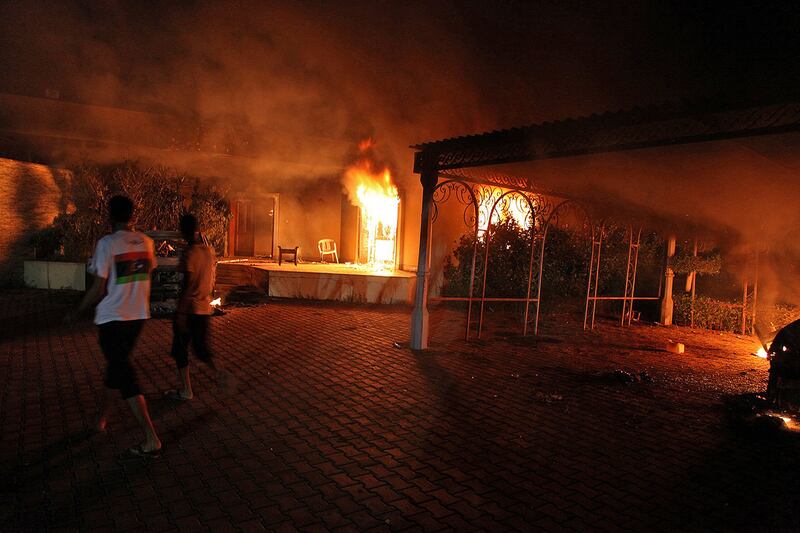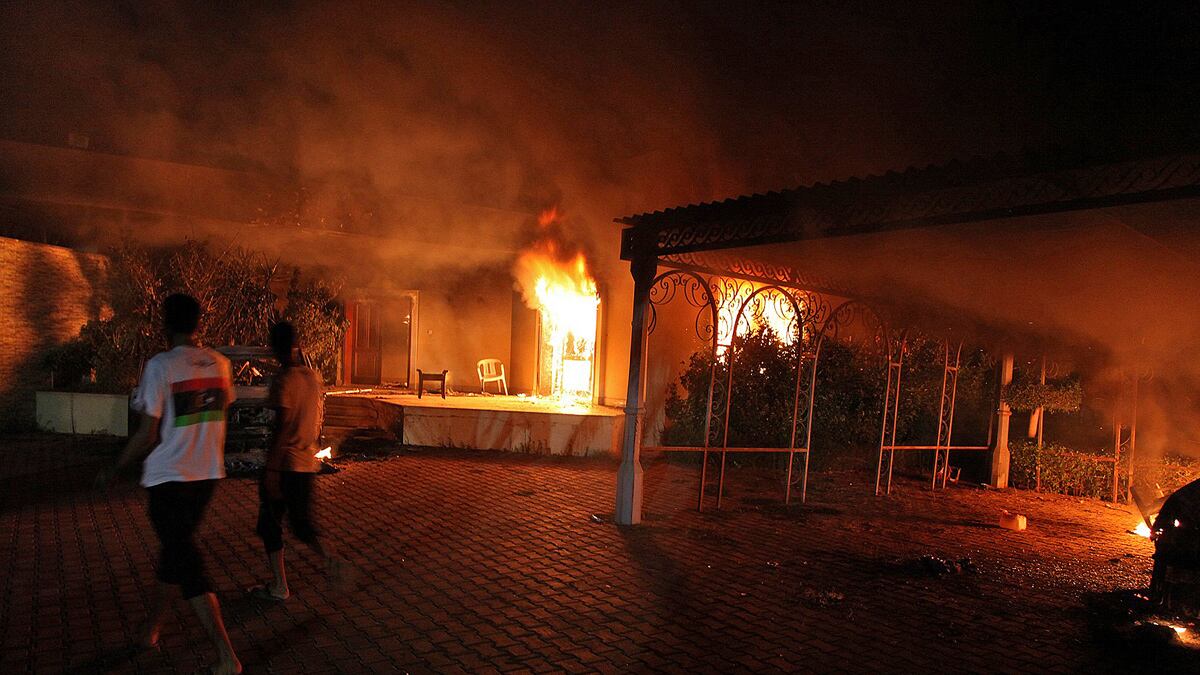The lobby of Tripoli’s Radisson Blu, one of the hotels in the Libyan capital favored by diplomats and NGOs, was a scene of gridlock and chaos yesterday morning, with baggage piled high. Flights to Europe were overbooked.
In the wake of a brazen assault on the American consulate in Benghazi this week that led to the death of U.S. ambassador Christopher Stevens, the Obama administration had decided to evacuate most staff from the U.S. embassy in Tripoli.
But Libyan democracy activists reject recent claims that the attack was a pre-planned al Qaeda strike and are dismayed by the administration’s pull-out order. They say it undercuts President Obama’s promise not to give up on Libya and, worse, sends a message to Salafists across the Arab Spring countries that all they have to do to force America to retreat is to mount fatal attacks on U.S. missions.
America has a crucial role to play to help Libyans develop democracy and stave off challenges from ultra-conservative Muslims, the activists told The Daily Beast. “The move was over-hasty and draconian,” says Mansour el-Kikhia, the Libyan-American author and political scientist. “Obama is reducing himself to being a bystander while the fight is on for democracy in Libya and North Africa. We are allowing fanatics in America and fanatics in North Africa to feed off each other, to provoke and react, and this is allowing them to determine events and to try to impede the development of democracy.”

El-Kikhia, who is a Benghazi native and divides his time between the States and Libya, adds: “It was a group of local Salafists who did this. It wasn’t a big terrorist conspiracy. We know who they are and we know where they live but alas the Libyan government is too weak and lacks the means to go after them. The vast majority of Libyans hold no animosity towards America—in fact they are grateful for the roles America, Britain, and France played in helping us free ourselves of Gaddafi. You don’t help us develop our democracy by evacuating the embassy.”
The U.S. embassy withdrawal—essential staff are remaining—has also triggered an automatic pullout by democracy and civil society NGOs funded either directly by the State Department or USAID.
Younger activists especially expressed shock when told of the evacuation and worried that a temporary drawdown would extend for months. What happened, they say, is not the real Libya, nor the face of Benghazi. “This is the city where the revolution began,” says Tariq Dajan, a 40-year-old engineer who joined about 200 other activists in Algiers Square on Sept. 12 to protest the attack on Benghazi and the death of four U.S. diplomats. “We like America and need American help and support. We are all human beings. We are the same, divided only by language and skin color.”
Democracy activists acknowledge that the demonstration’s poor turnout was disappointing. “People are scared, afraid to take to the streets. They are getting discouraged. Our politicians have not helped,” says Nizar Gabali.
For many Libyans the deaths are shocking enough—and apologies are spontaneously offered to Americans—but underlying the condolences is a fear that the U.S. will reduce its commitment to the Arab Spring.
Certainly the government, led by U.S.-trained engineer Mustafa Abushagur, who was elected this week by the newly installed General National Congress as prime minister, seems well aware of the dangers. Libyan officials say he is determined to find the assailants, and several arrests have been made in Benghazi.
In a statement to Libya’s state news agency, the deputy interior minister, Wanis Al-Sharif, said: “Some individuals suspected of involvement in the attack on the American Embassy in the city of Benghazi that resulted in the killing of the American ambassador and three of his companions have been arrested. The investigation is ongoing and will reveal either whether those individuals are involved or innocent."






